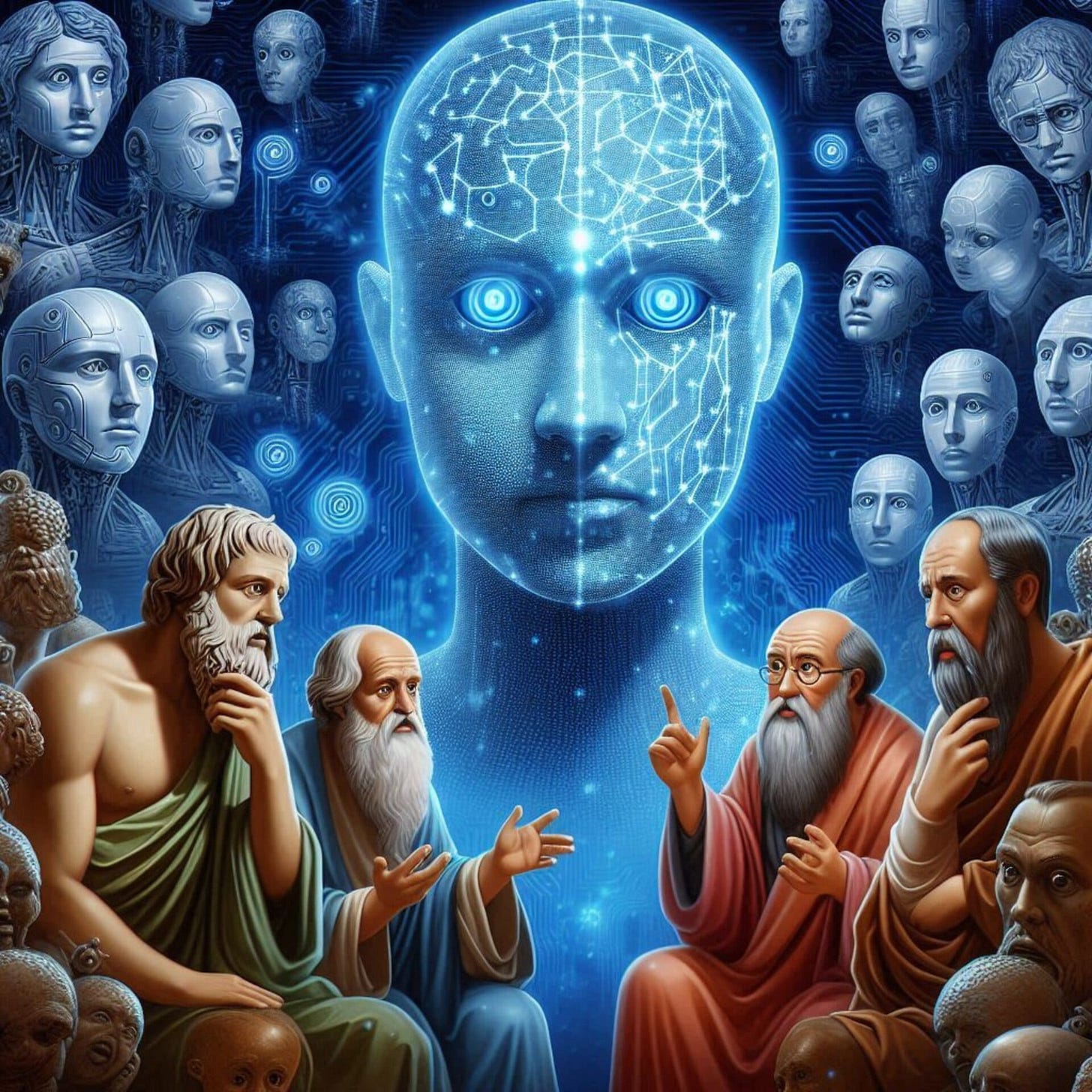A Day Playing with AI: Artistry Meets Absurdity?
Growing up in a Malay village in Johor Bahru during the Sixties, where there was no electricity, studying meant using a lamp from Grandpa's chicken coop. Ironing clothes involved a heavy iron heated with charcoal and blazing-red embers, and cooking required a stove fueled by large pieces of charcoal, with Grandma relying on me to puff and huff into it to keep the embers burning; otherwise, we wouldn't be able to eat Grandma's delicious chicken curry.
After many years of living in the 'hood of a Malay kampong, where tigers and wild boars were said to roam and snakes slithered in and out of the bushes into the streets and the dilapidated attap-roofed homes, I once encountered cobras visiting me while I was bathing naked on the poorly constructed bathroom floor. They entered through the opening where bathwater flowed out. Eventually, I witnessed electricity come to the village, and I saw my first electric fan, which became our family's symbol of entry into McClelland’s and Rostow’s Age of Modernization via The Five Stages of Growth. Growing up in such circumstances was a historical moment.
My romance with technology began with electricity, followed by computers, and now I find myself engaged with a fascinating new technology: AI, or Artificial Intelligence, as dubbed by the digerati.
So, my life has turned me into a postmodern psycho-philosophical flâneur, a time traveler who has experienced and interacted with the artifacts of the First, Second, and Third Industrial Revolutions. And now? I am playing with a toy of the Fourth Industrial Revolution: Artificial Intelligence. I am also teaching about the Metaverse. It has been an exciting journey so far.
One day, I became an artist commanding AI to serve as a tool for my artwork. Here are the notes of my work and play, where art meets absurdity, viewed semiotically.
“… Drawn from advancements in research from cognitive science (brain laterality, question mechanics, artificial intelligence), humanistic psychology, and reflective sociology, the theme of constructivism promises to be praxical (of ‘praxis’ or theory and practice in unity) in character and sustainable in its potential to address teaching and learning in the Post-Information Age. It can be conceived as super structurally Socratic, Piagetian, Freirian, and Deweyian in pedagogy, and it may promise to 'check and balance' the super structuralism of technological hyperism. If one were to draw a metaphor for constructivism, it could be likened to the dialogue between Socrates and Meno in a cyber-cave in cyberspace!”
If one is to draw a metaphor for a model of teaching, it could be one of an inverted triangle in which the Platonic and Confucian models are replaced by the Einsteinian model. Perhaps, too, if one is to build a scenario of the shape of societies to come with Constructivism as a guiding paradigm, we ought to conceive the emergence not only of personalistic, post-industrial selves engaging in information processing, manipulating, and creating activities in a world entirely borderless, but perhaps interestingly, the emergence of post-industrial tribes existing in cyber principalities loosely controlled by cybernation-states (withered by the digital technologies they have allowed themselves to be structured by!).
And next?
What then would be the implications and policy recommendations related to such a conception of change in the manner we perceive the philosophy of education? How do we educators continue to see ourselves as managers of virtue and guardians of social ethics as we, too, become hegemonized by the culture of technologism, of AI, of LLM, and of Chat GPT? …
DR AZLY RAHMAN grew up in Johor Bahru, Malaysia and holds a Columbia University (New York City) doctorate in International Education Development and Masters degrees in six fields of study: Education, International Affairs, Peace Studies, Communication, Creative Non-Fiction, and Fiction Writing. He has written more than 500 analyses/essays on Malaysia. His 30 years of teaching experience in Malaysia and the United States spans over a wide range of subjects, from elementary to graduate education. He is a frequent contributor to scholarly online forums in Malaysia, the USA, Greece, and Montenegro. He writes at Substack and Linkedin






